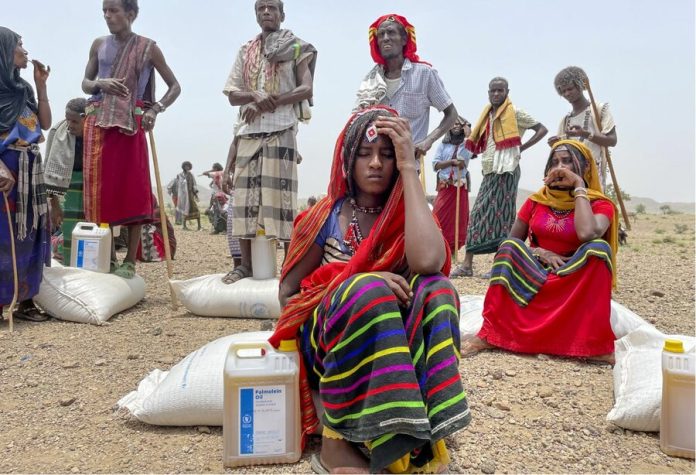A sword of Damocles is now hanging over the global economy – “especially the developing world”, according to UN Secretary-General António Guterres.
At a meeting of the UN Security Council, Mr. Guterres warned that besides the hour-to-hour devastation inside Ukraine, the war was reaching far beyond its borders.
For months now, developing countries have been struggling to recover from the pandemic – with record inflation, rising interest rates and looming debt burdens, while their ability to respond has been erased by exponential increases in the cost of financing.
“Now their breadbasket is being bombed”, he said.
Russia and Ukraine represent more than half of the world’s supply of sunflower oil and about 30 percent of the world’s wheat, he added, noting that Ukraine alone provides more than half of the World Food Programme’s (WFP) wheat supply.
“Food, fuel and fertilizer prices are skyrocketing. Supply chains are being disrupted. And the costs and delays of transportation of imported goods – when available – are at record levels.
“All of this is hitting the poorest the hardest and planting the seeds for political instability and unrest around the globe.”
He said 45 African and least developed countries import at least a third of their wheat from Ukraine or Russia, with 18 of those, import at least 50 percent.
“We must do everything possible to avert a hurricane of hunger and a meltdown of the global food system. In addition, we are seeing clear evidence of this war draining resources and attention from other trouble-spots in desperate need.
Mr. Guterres called on countries to find creative ways to finance increased humanitarian and development recovery needs worldwide, to give generously and immediately release pledged funds.
“In a word, developing countries are getting pummelled. They face a cascade of crises – beyond the Ukraine war, we cannot forget COVID and the impacts of climate change – in particular, drought.”
“In a word, developing countries are getting pummelled. They face a cascade of crises – beyond the Ukraine war, we cannot forget COVID and the impacts of climate change – in particular, drought.”
Food and energy price rises fuel hunger

Photo: WFP/Marco Frattini
Increased costs are set to affect World Food Programme (WFP) operations and impact the most vulnerable well beyond Ukraine’s borders.
The World Food Programme (WFP) is working to minimize the knock-on effects of rising food and energy prices – triggered by the Ukraine conflict – on hunger around the world, while it looks to scale up operations within the country and reach 3.1 million people.
A report just published by WFP warns that the costs of its global operations look set to increase by US$29 million a month. When added to pre-existing increases of US$42 million (since 2019), the total additional costs facing WFP are US$71 million per month.
This could spell disaster for millions, as WFP had already warned that 2022 would be a year of catastrophic hunger, with 44 million people in 38 countries teetering on the edge of famine.
As well as exporting a significant proportion of the world’s wheat, over the past ten years Ukraine has become WFP’s biggest supplier of foods such as sunflower oil.
With Russia being such a huge player in the energy sector, inevitable prices hikes resulting from sanctions on its oil and gas will limit access to food for some of the most vulnerable people in the world, many of whom are already facing super-high inflation, according to the report.
Adding to woes, shipping costs are multiplying with ‘war risk’ insurance premiums of up to US$300,000 for some voyages.
“As the war heats up, dozens of distant countries are set to feel the burn,” WFP Executive Director David Beasley said.




